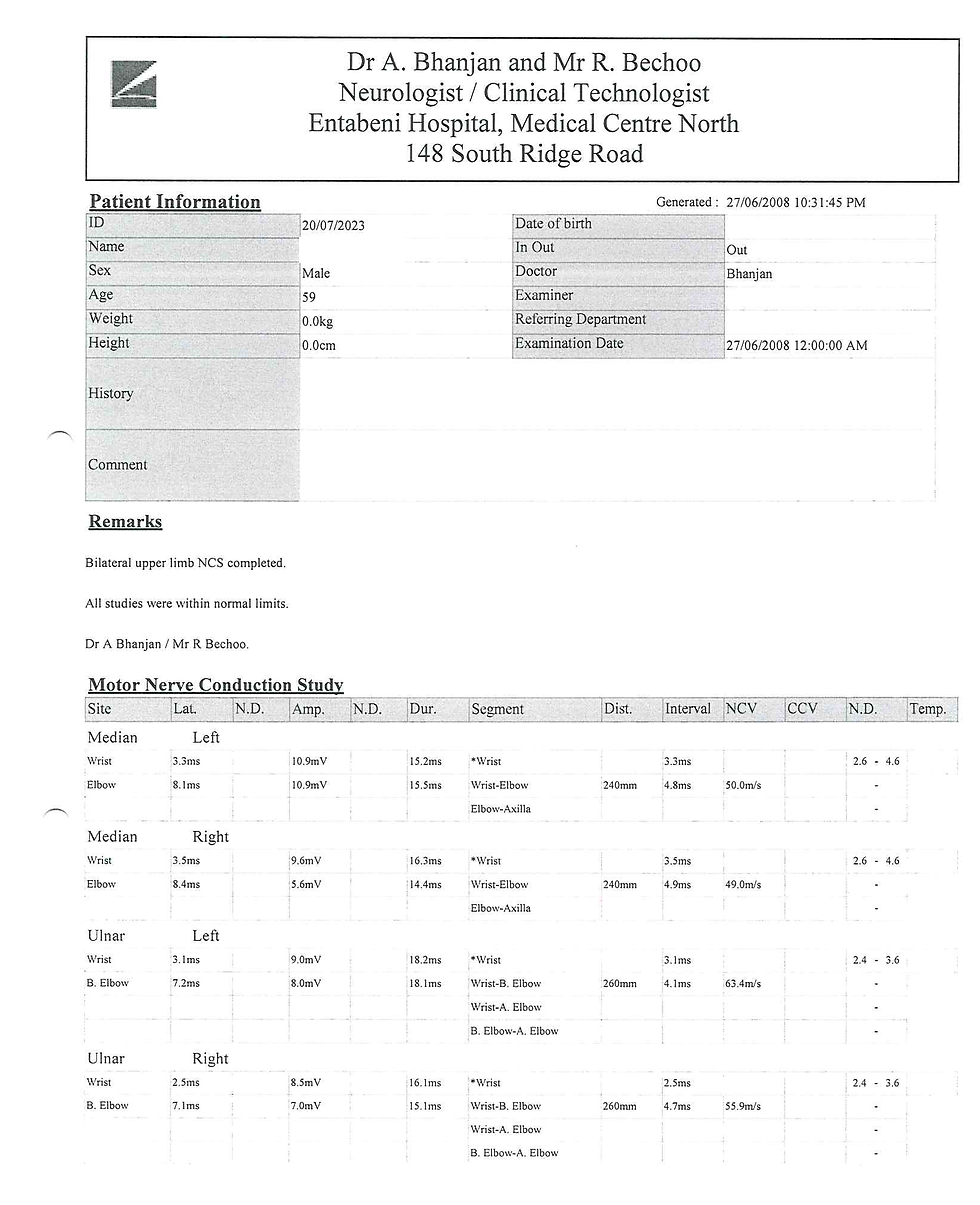Introduction
Nerve conduction studies (NCS) are a type of electrodiagnostic testing that can help diagnose issues with peripheral nerves, such as peripheral neuropathy and nerve compression syndromes.
Here are some key points about nerve conduction studies :
Nerve conduction studies involve placing small metal wires called electrodes on the skin that release tiny electric shocks to stimulate the nerves. The speed and strength of the nerve signal is measured.
Nerve conduction studies may be diagnostically helpful in patients suspected of having almost any peripheral nervous system (PNS) disorder, including disorders of nerve roots, peripheral nerves, muscle, and neuromuscular junction. Cranial nerves and spinal cord function may also be assessed.
The diagnosis of peripheral neuropathy can be supported by electrodiagnostic testing, which includes nerve conduction studies and needle electromyography.

Peripheral neuropathy can be divided into those that primarily affect axons and those that primarily affect the myelin sheath. Axon loss is seen in axonal neuropathies, while demyelination is seen in demyelinating neuropathies. Nerve conduction studies can help differentiate between the two types of neuropathies.
Whether a neuropathy is axonal or demyelinating has implications for medical work-up and treatment options. Nerve conduction studies are required to make this distinction.
A nerve conduction study works by testing the transmission of electrical signals in nerves, especially the speed at which they travel and their strength. In healthy nerves, electrical signals can travel up to 120 miles per hour. If a nerve is damaged, the current will be slower and weaker.
In conclusion, nerve conduction studies are an important diagnostic tool for evaluating peripheral neuropathy and other peripheral nerve disorders.
They can help differentiate between axonal and demyelinating neuropathies, which has implications for medical work-up and treatment options.
What should I expect during a nerve conduction study ?
A nerve conduction study (NCS) is a diagnostic test that evaluates the function of peripheral nerves. Here is what you can expect during a nerve conduction study:
You will be asked to remove any clothing, jewelry, hairpins, eyeglasses, and hearing aids that may interfere with the test.
You will be asked to sit or lie down on a table or bed.
A healthcare provider will attach one or more electrodes to a certain nerve or nerves using tape or a paste. The electrodes, called stimulating electrodes, deliver a mild electrical pulse.
Another electrode, called a recording electrode, will be placed on your skin over the nerve being tested.
The healthcare provider will then place a stimulating electrode away from the recording electrode, at a known distance.
A mild and brief electrical shock, given through the stimulating electrode, will stimulate your nerve.
The other electrode records the resulting electrical activity, which is displayed as wavy and spiky lines on a video screen.
The activity may also be recorded and sent to an audio speaker. You may hear popping sounds when you contract your muscle.
This process is repeated for each nerve being tested.
The speed is then calculated by measuring the distance between electrodes and the time it takes for electrical impulses to travel between electrodes.
A related test that may be done is an electromyography (EMG), which measures the electrical activity in your muscles. It is often done at the same time as an NCS.

The entire procedure usually takes about 20-30 minutes to complete. In some cases, nerves may be tested in multiple locations, which can make the procedure take longer.
Overall, having a nerve conduction study is an effective way to allow your healthcare provider to diagnose issues with your peripheral nerves and determine the presence, location, and extent of diseases that damage the nerves and muscles.
How much does it Cost ?
The cost of nerve conduction sudies vary, depending on the number of nerves sampled during the examination for example, 1, 2 or 4 limbs.
Certain medical aids can cover the cost of these investigations, done both in and out of the hospital setting.

Check with your medical aid if you are eligible for nerve conduction studies to be performed, prior. You may contact us for the rates, using the link below.
Book your Nerve Conduction Studies at the DNLC, using the link below ...

Comments